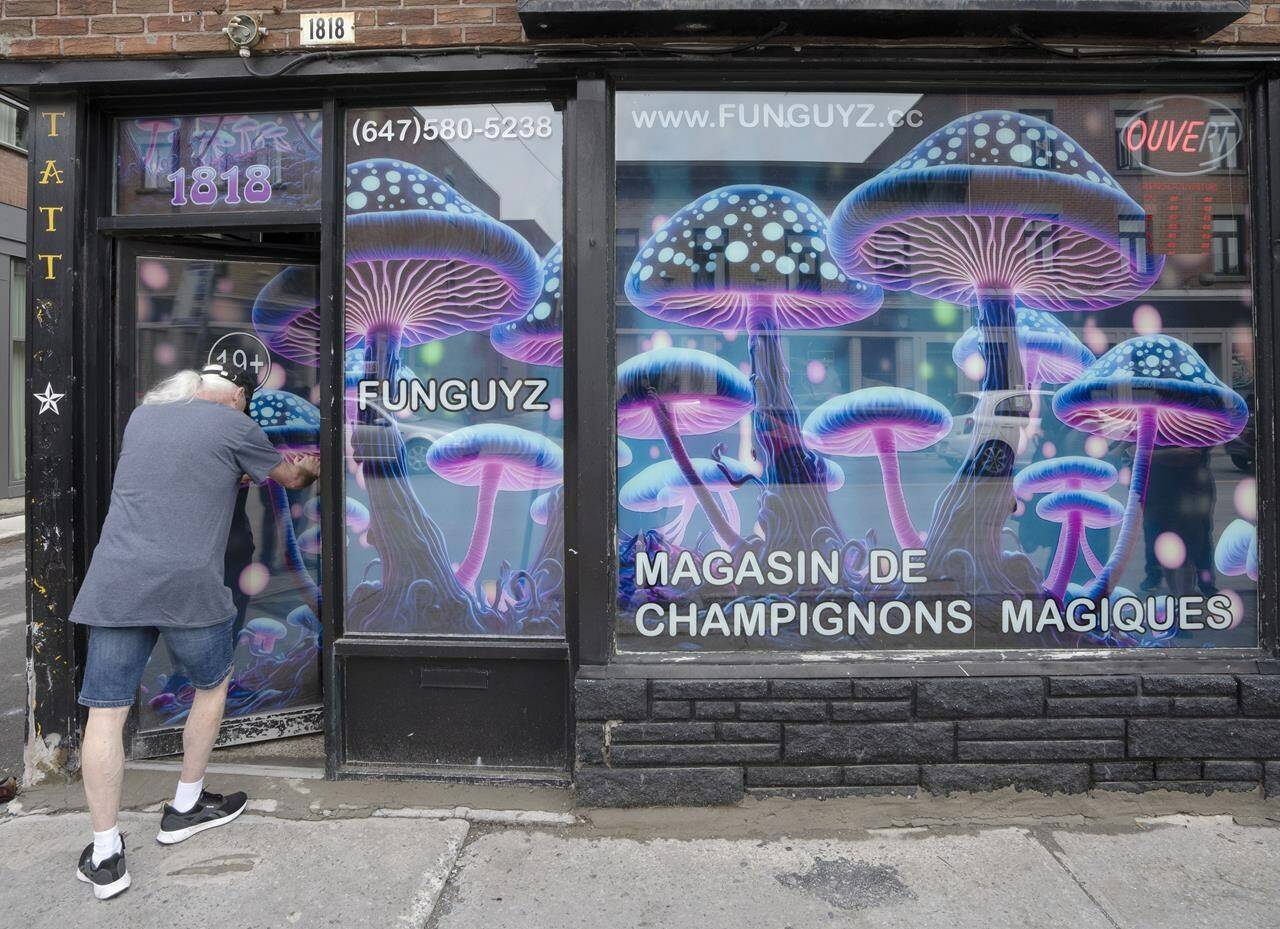Magic mushroom stores are opening illegally across Canada, challenging the country’s drug laws, but experts say the illicit vendors are unlikely to radically advance acceptance of the hallucinogenic fungi among authorities — or the public.
Psilocybin — the psychedelic compound in magic mushrooms — is increasingly used in clinical trials examining its therapeutic effects. But a rapid growth in the illegal hallucinogenic drug market could stifle progress by turning public opinion against the substances, said Dr. Andrew Bui-Nguyen, whose clinic offers government-sanctioned psychedelic treatments to select patients.
“I think everyone is enthused about the psychedelics renaissance, but I think there’s ways to do it very collaboratively with the policymakers,” said Bui-Nguyen, medical director of the Montreal clinic Mindspace by Numinus, which has been given approval by Health Canada to use psilocybin under strict conditions to treat depression.
READ MORE: First patient in Quebec gets approval from Health Canada for magic mushroom therapy
Montreal is the latest focus of the debate about psychedelic drug use. On Tuesday, a vendor called FunGuyz started selling magic mushrooms out of a corner store east of downtown Montreal. Within hours police raided the store and made four arrests. One woman, Feila Alichina Idrissa, faces a charge related to substance trafficking.
On Wednesday, the location sat closed and mostly empty, the lurid blue and pink fungi illustrations that once covered the storefront windows were gone, revealing a disordered interior with only a handful of clear plastic bins littering the floor.
It’s unclear who owns FunGuyz, which sells psilocybin online and boasts 10 locations in Ontario. A man claiming to be the store spokesman has given two different spellings of his name to The Canadian Press and has refused to provide identification. He has said the Montreal store opened as a form of protest to increase access to psilocybin.
Other illegal psychedelic drug retailers have popped up in Manitoba.
Meanwhile, hallucinogens, like psilocybin, are subject to sale and possession bans in Canada, and are only permitted to be used under limited medical contexts. But clinical trials with the drugs have been slow to develop in the country.
So far, Bui-Nguyen explained, Health Canada has issued exemptions to the psilocybin ban for treatments involving patients with end-of-life distress or severe depression — but only if the patients’ conditions have resisted other treatment methods.
There has been recent progress, however, including a $3-million government investment in June to support three more clinical trials involving psilocybin. Bui-Nguyen says he expects psychedelic treatment to expand further if trials yield positive results.
Whether psychedelic drugs for recreational use will ever be legal in Canada is unclear. But if drugs like psilocybin become more widely available in the country, that process would likely not come from illegal stores, said Daniel Weinstock, a McGill University law professor who studies public policy.
“I think that having these sort of rogue stores popping up here and there is more evidence” of the failure of substance bans, he said, “than a solution to the problem.”
Weinstock recalled the process of cannabis legalization in Canada, where legal recreational use only followed extensive medical application and widespread social acceptability — two key elements that he said psychedelic drugs still lack.
“The road isn’t quite as smooth” as illegal stores might suggest, he said.
Bui-Nguyen advocates for the decriminalization of psychedelics and the expansion of their medical use, and he says stores like FunGuyz may actually be making it more difficult for these drugs to gain widespread acceptance among lawmakers and citizens.
“Sometimes just doing things blindly and without reflection around the possible impacts can actually … be counterproductive to some extent,” he said.
– Thomas MacDonald, The Canadian Press; This story was produced with the financial assistance of the Meta and Canadian Press News Fellowship.
* * * * *
To get the week’s latest must-read stories from the cannabis world direct to your inbox, sign up for our weekly newsletter at canadianevergreen.com. You can also follow us on Facebook, Instagram and Twitter.

